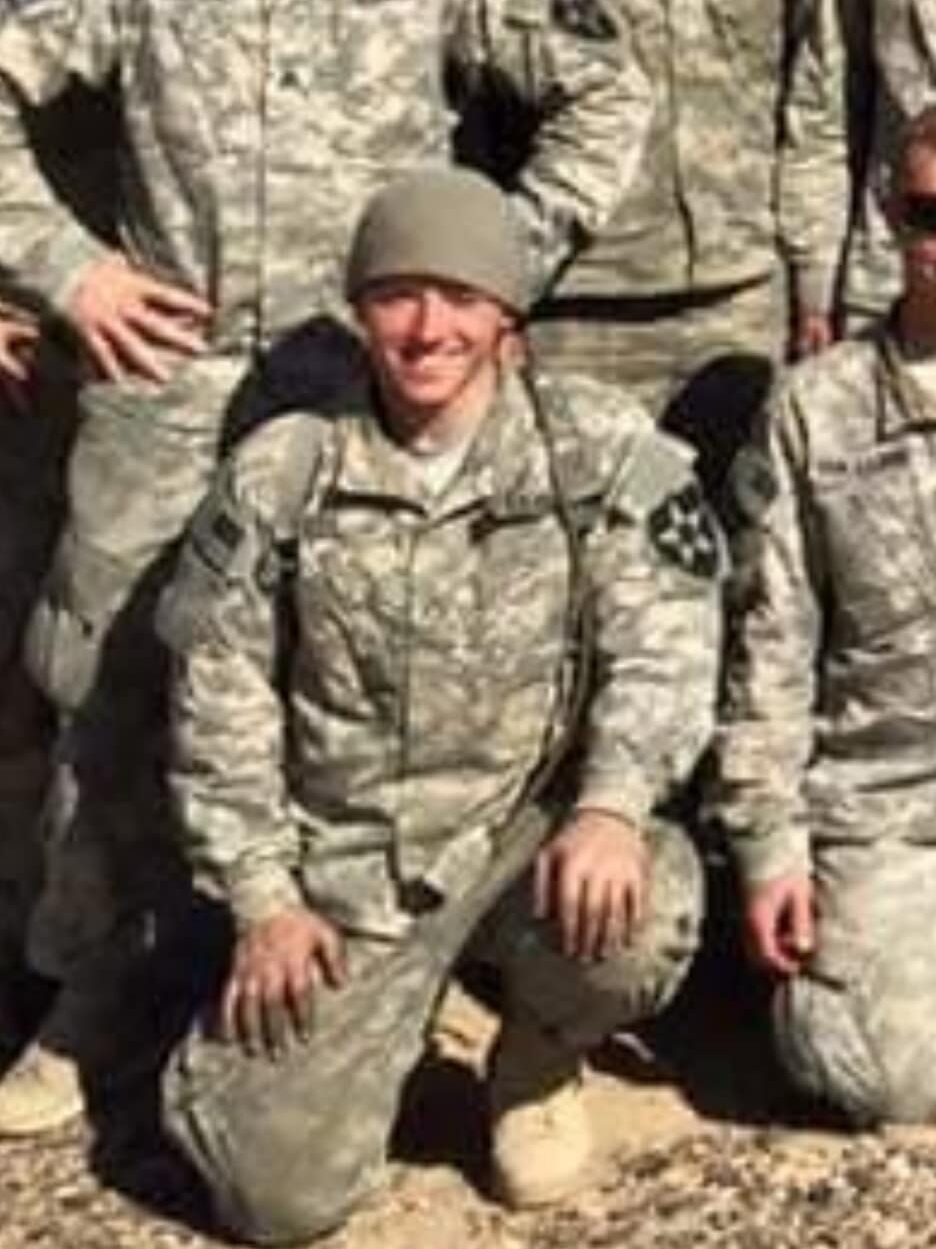Inspired by my son
Jason C. has been a senior consultant at Microsoft for 11 years, where he focuses on Active Directory Migration Service (ADMS) on the global delivery team Identity Migration Service (IMS). Customers’ migration journeys typically involve cloud enablement and Active Directory consolidation for various use cases, such as divestitures, mergers, and acquisitions.
You can learn more about the Identity Migration Service capabilities on our YouTube channel or follow our blog on TechCommunity.
My son Blaine was in the infantry in the US Army stationed at Fort Lewis, WA. He called me one day to ask if I knew about a program called MSSA (Microsoft Software and Systems Academy). It was the first time I had heard about it, and my initial thought was it was a fraud. Through further inquiry, it became evident that the program was indeed real—I had even collaborated with some veterans who were participants in the program.

These individuals were among the most skilled professionals I have collaborated with at Microsoft and in the IT industry. This realization inspired me to want to plug into this great program, and give back where I am able.
Blaine was not able to get into the MSSA program, which was a disappointment to both he and I. I would have loved to see him benefit from the MSSA program and the community that comes with it. Although Blaine’s path was not through MSSA, his military transition experience is the core reason I show up every day and do my part to help the veteran community. I may not be able to change the world, but I can change someone’s world.
Helping veterans connect the dots
As Blaine transitioned out of the military, he taught me critical skills in supporting veterans during this difficult period. My son joined the military shortly after high school, so as a young man he organically developed skills in the military that you just cannot learn as quickly in the civilian world. It was not always easy for a civilian like me to understand military life or military roles, or how to map those skills into a brand-new civilian world.
We all want to be a part of something bigger—and I could tell early on in our transition discussions, he had a sense of mission, a team-based mindset, with leadership qualities.
Blaine also taught me his mindset about physical security, and how it mapped into cyber security concepts. One door open is a threat in both worlds. I realized that if I took time to understand his role, that I could better align his military skills to the civilian world, putting him on the best path.
Blaine inspired me to focus on the person, their individual skills in military, and to map them to roles in the IT industry.
This is why I focus on professional development. Many veterans have a strong foundation when they come out of service, and as an IT professional I want to tap into that immediately. Role-specific skills come with time. But military professionals often have skills that really can’t be taught.
Building from a military-grade foundation
As a mentor in the MSSA program, I focus on professional skills. I trust the core skills my mentees have already built by the time they leave military service. They then get a technical foundation from the MSSA program, and I know they will get on-the-job training over the next few years that will grow their technical skills beyond my own.
So I focus my time and attention educating on what it means to be a trusted advisor. I have found that this mindset transcends industry and role, and puts my mentees in the mindset for success in any industry.
As a consultant, being a trusted advisor has been critical to my success in the IT industry for 26 years now. With my mentees, I try to extract what’s worked for me into “mindset training”—that is, to educate mentees on how to become the link that connects the value of their work to the customer, and to maximize the benefits of the services they offer and deliver.
Veterans come to MSSA with collaborative and leadership skills that most professionals never achieve. Working with them to develop their mindset unleashes excellence—polishing them into the kind of teammates and colleagues who lead with purpose and deliver extraordinary impact.
I want my mentees to have confidence going into a new job market in the civilian world. So we work together and perform mock interviews, to help them get the reps in and become comfortable in the interview process. That way, when they show up for the real job interviews, they are game-time ready. With enough practice, it’s just lather, rinse, and repeat.
Sharing their wins
I love the MSSA program and supporting veterans along their transition. My favorite part is when a mentee lands a job in the IT industry. Each individual counts, and each win keeps me coming back to give back.
MSSA mentees are full of energy, and it’s contagious. Working with them has sparked my creativity again, pushing me into spaces I never thought I would be—including writing this blog!
I show up for veterans because they show up for us. Mentoring has impacted my life in ways I never could have imagined, and it fills my heart being able to give back to those who’ve served.
Closing thoughts
Your company may not have a veteran skilling program like MSSA. If it doesn’t, see what you can do to start one. If you can’t, propose a mentorship program to support veterans starting out in their post-military career. It won’t just benefit veteran mentees, but the mentors and the organization as well.
However you can do it, I encourage you to take time today to support the veterans community by getting involved with MSSA or similar programs.
